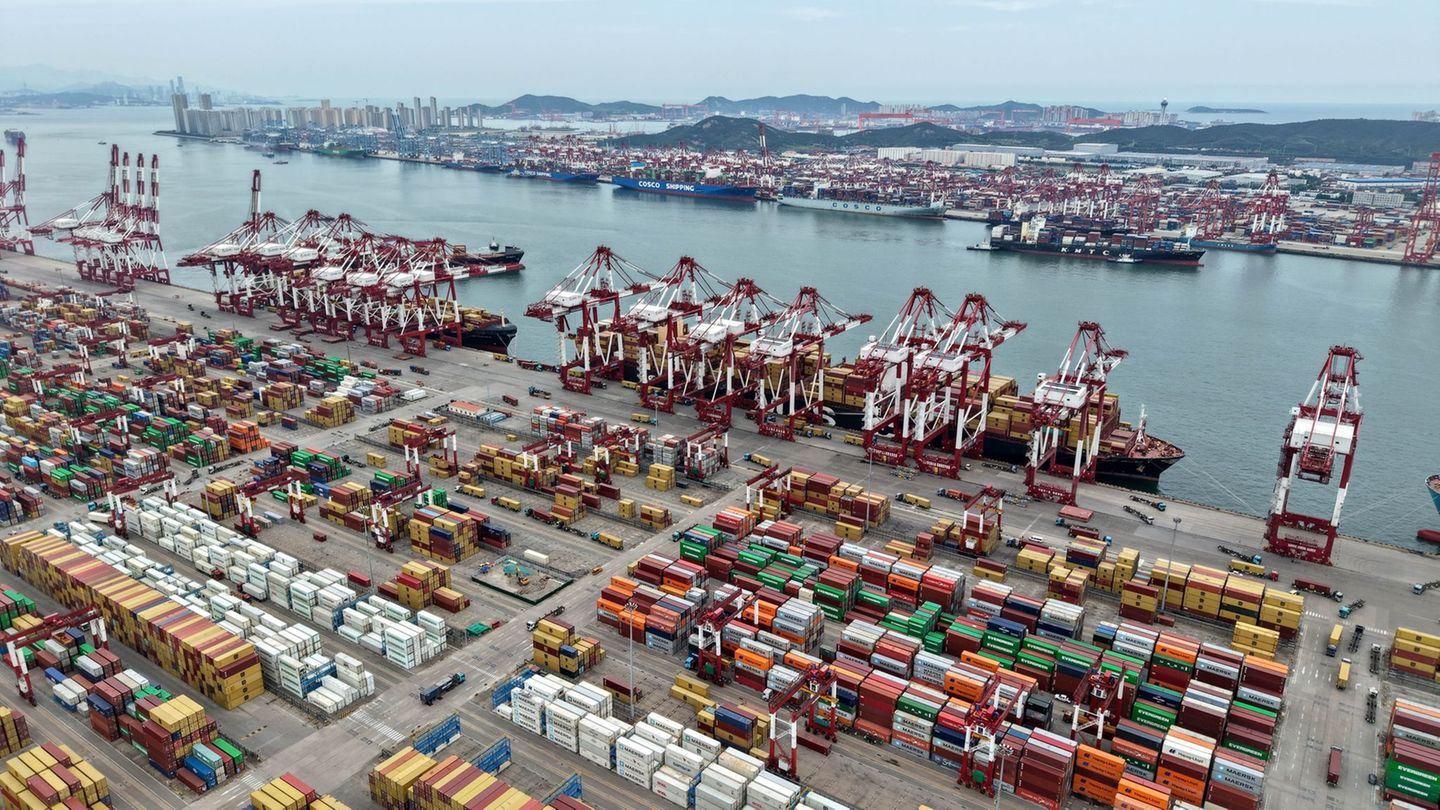The energy crisis, record inflation and delivery bottlenecks weighed on the German economy last year. Nevertheless, Europe’s largest economy is proving to be comparatively robust.
The Russian war of aggression in Ukraine has dashed hopes of a strong economic upswing in Germany after two years of Corona. Nevertheless, “the German economy was able to hold its own well overall in 2022,” explained the new President of the Federal Statistical Office, Ruth Brand, at the presentation of the first estimate for the past year on Friday in Berlin. Accordingly, Europe’s largest economy grew by 1.9 percent in 2022 compared to the previous year.
What are the consequences of the energy crisis?
For many years, Germany benefited from cheap pipeline gas from Russia. That changed with Moscow’s attack on Ukraine. Russian gas, which once accounted for 55 percent of Germany’s total supply, is no longer flowing. In addition, many Western countries, including Germany, imposed sanctions on Russia, including oil. The result: gas, electricity and fuel have become more expensive. Consumers have to be prepared for sometimes significantly higher prices this year as well. According to the latest information from the comparison portal Check24, there are more than 1,000 cases of price increases in the basic electricity and gas supply for 2023. The increases amount to an average of 38.1 percent for electricity and 25.1 percent for gas compared to September 30, 2022 .
Will inflation stay high?
High energy and food prices have been driving up general inflation for months. According to initial estimates, inflation in Germany last year averaged 7.9 percent, the highest level since the founding of the Federal Republic. High inflation rates reduce the purchasing power of consumers. People can afford less for one euro. That can dampen consumption. Catch-up effects after the lifting of almost all corona restrictions ensured in 2022 that private consumer spending was the most important pillar of growth. Economists expect prices to relax to a certain extent in the current year, but the level of inflation should also be comparatively high in 2023. “It will take at best one to two years before we have proper price stability again,” predicted Dekabank chief economist Ulrich Kater.
How big is the risk of a gas shortage?
The winter has been comparatively mild so far. This is one of the reasons why the gas storage facilities in this country are well filled. According to estimates by the Federal Network Agency, the chances of Germany getting through the winter without gas bottlenecks have improved noticeably. “A gas shortage this winter is becoming increasingly unlikely,” the authority recently predicted. In the event of a gas shortage, for example, the gas supply for companies would have to be rationed. Many companies would then have to cut back their production, with consequences for economic development.
What is the federal government doing in the crisis?
Chancellor Olaf Scholz (SPD) spoke of a “double boom” when presenting the billion-dollar relief package with which the traffic light coalition wants to cushion the consequences of increased energy prices for consumers and companies. These include business aid and the energy price brakes from March for private households and small and medium-sized companies. Retrospective relief is planned for January and February 2023. In addition, gas and district heating customers did not have to pay a deduction in December 2022. The federal government covers these costs. Economists assume that the price brakes will dampen inflation this year.
How is the situation in the building?
Significantly higher mortgage interest rates and high construction costs are dampening demand. In addition, there is a shortage of skilled workers and a lack of materials. The long-standing construction boom that supported the economy is coming to an end in the foreseeable future. According to initial data from the Federal Office, construction investments fell by 1.6 percent in real terms last year. “The headwind is getting stronger. Residential construction in particular has almost come to a standstill,” said Tim-Oliver Müller, General Manager of the Main Association of the German Construction Industry, recently. Especially in residential construction, clients and investors jump off. According to a survey by the German Economic Institute (IW), more than half of the companies active in the construction industry expect sales to fall in the current year.
How is the export?
For decades, the export nation Germany benefited from globalization. The model: Import cheap energy and intermediate goods, export high-quality products. But for some time now, the headwind has been increasing. “A strong economic slowdown, especially in the important sales markets of the EU and China […] export sales are falling in line with the mild winter,” explained Volker Treier, head of foreign trade at the Association of German Chambers of Industry and Commerce (DIHK). In addition, there have been disrupted supply chains since the Corona crisis with preliminary products and materials. However, business associations fear renewed pressure on the supply chains due to the massive corona wave that is currently rolling through China.
Source: Stern
Jane Stock is a technology author, who has written for 24 Hours World. She writes about the latest in technology news and trends, and is always on the lookout for new and innovative ways to improve his audience’s experience.




